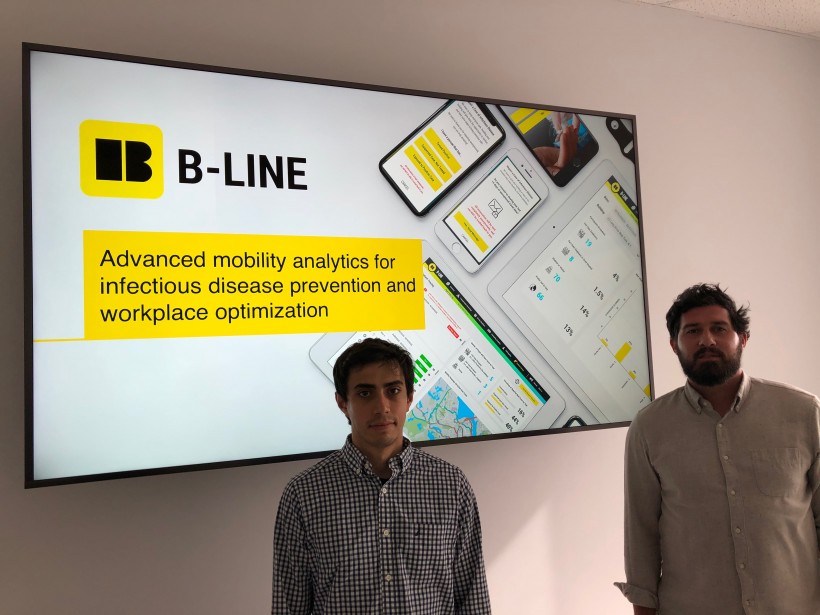Halifax-based B-Line Analytics, whose software tracks commuters, is developing a contact-tracing service that CEO Aaron Short believes will be quicker and easier to implement than government alternatives.
His company’s flagship product is an app that logs users’ movements when they travel to and from commercial buildings, allowing planners, architects and engineers to identify and accommodate for routes with the highest traffic levels.
Now B-Line is adding features to help identify where people with COVID-19 have been, so other people in that vicinity can be alerted. Rather than logging ill users’ movements everywhere they go, in the style of the app proposed by the Canadian government, the scope of B-Line’s offering is limited to a single office building at a time.
“People are on high alert right now, and anything [that makes] them feel safer, people want that solution,” said Short in an interview. “Otherwise, it’s like getting on a ship with no life jackets.”
Short, a former urban planner in Toronto, founded B-Line in 2016. He was spurred by the realization that most building and city layouts failed to properly account for what routes and modes of transportation commuters use to travel to and from their destinations.
Property owners and developers buy access to the service from B-Line, and encourage people who work on their property to download the app. It tracks all of their movements, but saves only the data related to trips to and from their workplace, which B-Line’s customers then use to make design decisions.
For example, a university recently used the company’s data to rework its transportation system. Likewise, Short said the owner of a commercial property might use data from the app to lobby local government officials for improved public transportation in a given area.
As well, the app supports both surveys and direct communication with property owners, so that users can notify them of incidents such as drink spills.
He added B-Line’s best customers tend to be developers of newer, environmentally friendly buildings.
“Our technology works with all buildings, not just green buildings,” he said. “But we focus on green buildings because often they’re higher-quality buildings. These are people looking for technology that is more sophisticated.”
Appili Raises $17M for COVID Tests
The contact tracing works by allowing infected users to share key details, such as: the floor of a building they work on; their direct supervisor; and the times of day when they have been in the office.
When a worker is diagnosed with COVID-19, the property owner or manager verifies the situation with that person’s employer to guard against false alarms, and other app users are warned that they may have been exposed.
The process is anonymous, and because the tracking is voluntary and localized, it doesn’t require the substantial legislative and social changes that Short worries government tracking might necessitate.
Meanwhile, B-Line is aiming to cement its relationship with eco-friendly developers by way of a new collaboration with Arc Skoru – a company affiliated with the U.S. Green Building Council.
Arc is a software platform that allows building owners to track sustainability metrics and visitor feedback that they are required to log in order to receive certification from the council. The platform is being expanded to include features targeted at increasing the likelihood of a safe reopening of the United States economy, and B-Line’s technology will be among the new integrations.
According to Short, the demand for contact-tracing services is particularly strong in major American cities, such as New York, where COVID-19 infection rates are still high.
“I think COVID is going to be our way to expand pretty rapidly across portfolios,” he said. “If COVID has taught anything, it’s that we need healthier and safer workplaces.”










